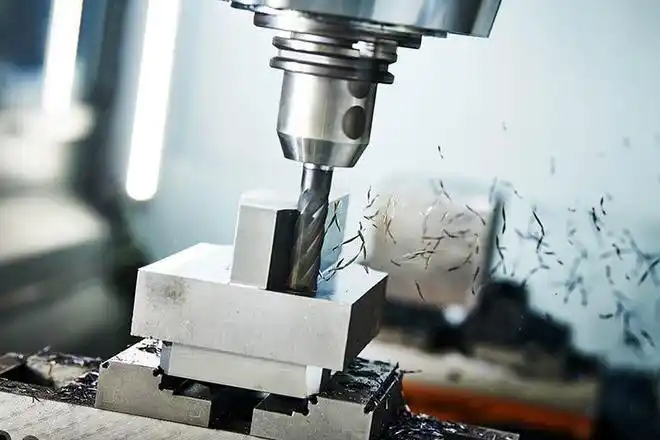- Time:2024/12/13 Posted:Dongguan Quality Innovation And Technology Co.,Ltd
In the fast-evolving world of electronics, precision and efficiency are paramount. Custom metal fabrication plays a pivotal role in meeting these demands, especially when paired with precision CNC (Computer Numerical Control) milling. This innovative manufacturing process ensures the creation of high-quality, tailor-made components essential for electronic devices, from consumer gadgets to industrial systems.

What is Custom Metal Fabrication?
Custom metal fabrication involves designing, cutting, shaping, and assembling metal parts to meet specific requirements. In the electronics industry, this often means creating components like enclosures, brackets, heat sinks, and connectors with tight tolerances and intricate designs.
The Role of CNC Milling in Custom Fabrication
CNC milling is a subtractive manufacturing process that removes material from a metal workpiece using precision-controlled tools. Guided by CAD (Computer-Aided Design) software, CNC machines deliver unparalleled accuracy, repeatability, and efficiency, making them ideal for the intricate needs of the electronics sector.
Key Advantages of CNC Milling in Electronics
Unmatched Precision
CNC milling machines operate with micron-level accuracy, ensuring that components meet the exact specifications required for complex electronic devices.Versatility in Material Selection
From aluminum and stainless steel to copper and titanium, CNC milling accommodates a wide range of metals, allowing manufacturers to choose materials that align with the functional needs of their electronics.Complex Geometries Made Simple
CNC milling excels in crafting intricate designs, including cavities, grooves, and patterns, which are essential for high-performance electronic components.High-Quality Finishes
The process delivers smooth, clean surfaces, often eliminating the need for extensive post-processing. This is particularly beneficial for visible components or parts requiring excellent conductivity.Cost-Effective for Prototypes and Small Batches
With rapid prototyping capabilities, CNC milling reduces lead times and costs for small production runs, making it perfect for custom electronics projects.Applications of Precision CNC Milling in Electronics
Custom Enclosures
CNC milling allows for the creation of robust and aesthetically pleasing enclosures that protect sensitive electronics while providing effective thermal management.Heat Sinks
Efficient thermal regulation is critical in electronics. CNC-milled heat sinks with intricate fin designs enhance heat dissipation, ensuring device longevity.Circuit Board Holders and Connectors
Precisely milled holders and connectors ensure reliable alignment and stability for circuit boards, contributing to overall device performance.Prototyping and Testing
For R&D teams, CNC milling facilitates rapid prototyping of new designs, enabling quick iterations and testing before mass production.Custom Tooling and Fixtures
CNC milling is instrumental in producing tooling and fixtures tailored to support manufacturing processes in electronics assembly.Tips for Optimizing CNC Milling for Electronics
Collaborate on Design
Work closely with fabricators during the design phase to ensure manufacturability and cost efficiency.Select the Right Material
Consider factors like conductivity, corrosion resistance, and weight when choosing materials for your components.Leverage Advanced Software
Use high-quality CAD/CAM software to optimize designs and simulate machining processes for best results.Inspect and Test
Incorporate rigorous quality control measures, including dimensional inspections and functional testing, to ensure reliability.Why Custom CNC Milling Matters for Modern Electronics
The demand for smaller, smarter, and more efficient devices drives the need for advanced manufacturing techniques like CNC milling. Custom solutions empower businesses to stay competitive by offering tailored designs, high-performance components, and quicker turnaround times.
Future Trends in CNC Milling for Electronics
Micro-Milling: As electronics continue to shrink, the demand for micro-milling, which handles minuscule components with extreme precision, is growing.
Sustainability: CNC milling processes are adopting eco-friendly practices, such as waste reduction and recyclable materials.
AI Integration: Smart CNC machines powered by artificial intelligence improve efficiency and reduce errors, making the process even more reliable.
Conclusion
Custom metal fabrication combined with precision CNC milling is transforming the electronics industry. From prototyping to production, these technologies deliver the precision, durability, and customization needed to create cutting-edge devices. By embracing CNC milling, manufacturers can ensure their components meet the high standards required for today's electronics while staying ahead of future trends.
Whether you’re developing the latest consumer gadget or a complex industrial system, CNC milling provides the foundation for superior craftsmanship and innovation.
